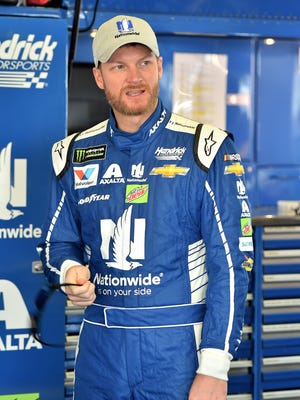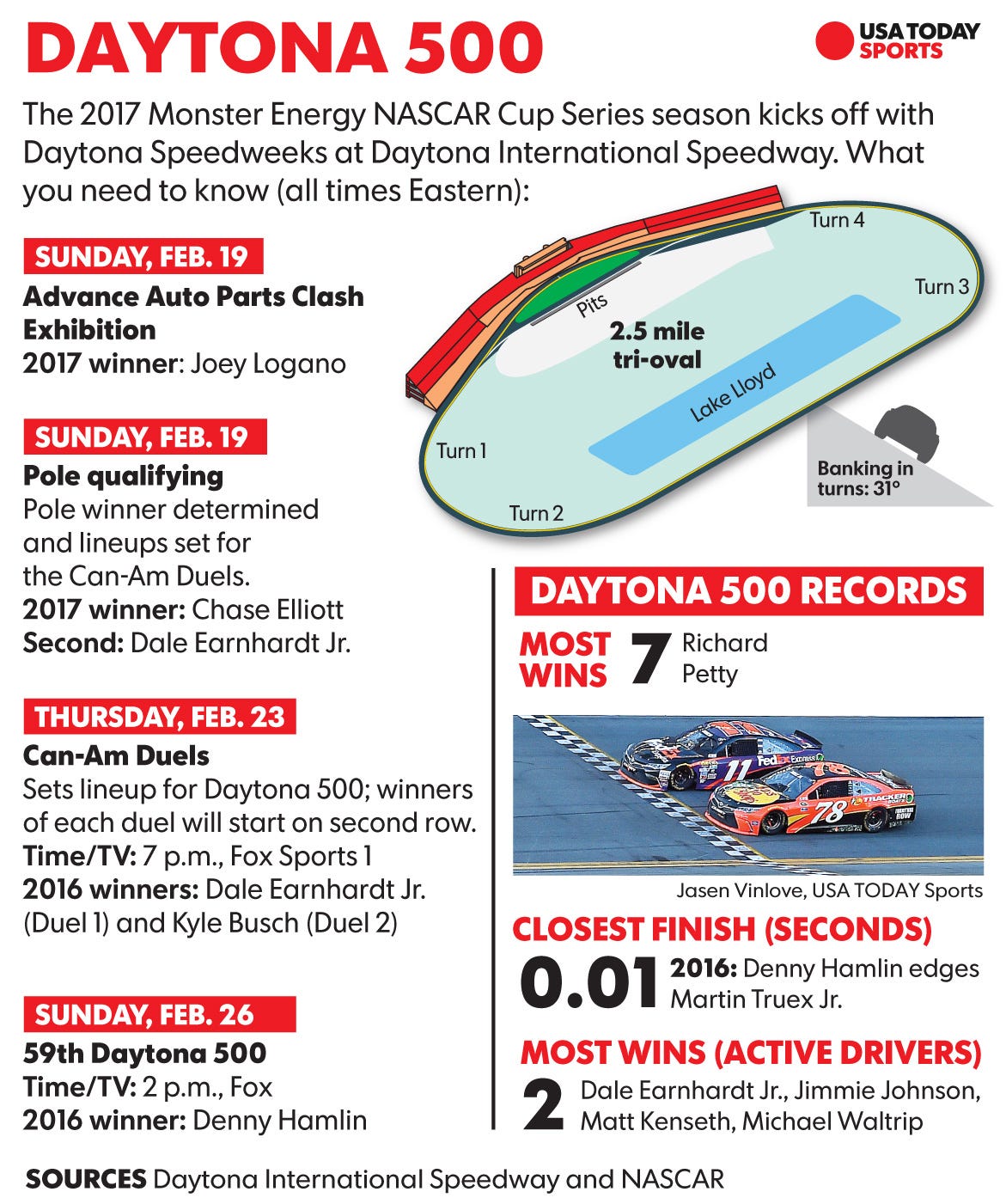Dale Earnhardt Jr. 'won't have any regrets' to keep racing or walk away

DAYTONA BEACH, Fla. — Dale Earnhardt Jr. said that he is mentally prepared to walk away from racing when the time comes, either from a possible recurrence of the concussions that cost him the second half of the 2016 Monster Energy NASCAR Cup Series or because of inevitable retirement. But he’s also mentally prepared for his return, he asserted.
And hours after undertaking his first practice session in preparation for the Feb. 26 Daytona 500, Earnhardt told a group of reporters that when the decision comes in either instance, he will make it for himself.
“I won’t have any regrets,” said Earnhardt, 42, adding, “For the longest time, I let racing be what I was, not what I did.”
RELATED COVERAGE:
Daytona 500: Dale Earnhardt Jr. returns to NASCAR
NASCAR announces updated concussion protocol for drivers
Dale Jr.'s return, Johnson's quest, new rules spur NASCAR in 2017
Earnhardt ceded the Hendrick Motorsports No. 88 Chevrolet to Alex Bowman and Jeff Gordon for the second half of last season after the disorientation he felt weeks after a July race at Kentucky stemmed not from allergies as he expected but a concussion suffered three races earlier at Michigan. Earnhardt had sustained previous concussions earlier in his career.
As NASCAR’s most popular driver for 14 consecutive seasons, the son and namesake of one of the sport’s legends and a marketing dynamo, Earnhardt is yoked with vast responsibility beyond his contributions as a driver.
PHOTOS: Behind the wheel with Dale Earnhardt Jr.

Earnhardt said his neurologist, Dr. Micky Collins, medical director of the UPMC (University of Pittsburgh Medical Center) Sports Medicine, impressed upon him that an attempted return was wise only with the requisite personal passion.
“There’s so many moving parts to what we having going on,” Earnhardt admitted. “There’s a lot of elements and it’s not an easy decision to say when is the time to hang it up and is it worth it and all that good stuff. There was a lot of time in there during the recovery where there were days where I was 90 percent sure I wasn’t going to drive again. There was days when it was 50 percent.”
“… I’m not going to race for any other reason but I want to be out there. I don’t think that’s very smart to do it for any other reasons. There’s motivations to racing: the fans and camaraderie and all the great things you get to experience, but if I’m gonna come back I have to be racing because I want to be out there.
“I couldn’t do that and put myself through the chance I could be back in rehab for months and months going through that crap again if I really didn’t want to be out there. I couldn’t do it because of contractual responsibilities or we just ain’t ready to retire yet, we don’t have our ducks in a row from a financial standpoint, we don’t have a plan after retirement. We can’t keep racing just because of those things, it’s too much of a risk, I think.”
Follow James on Twitter @brantjames
